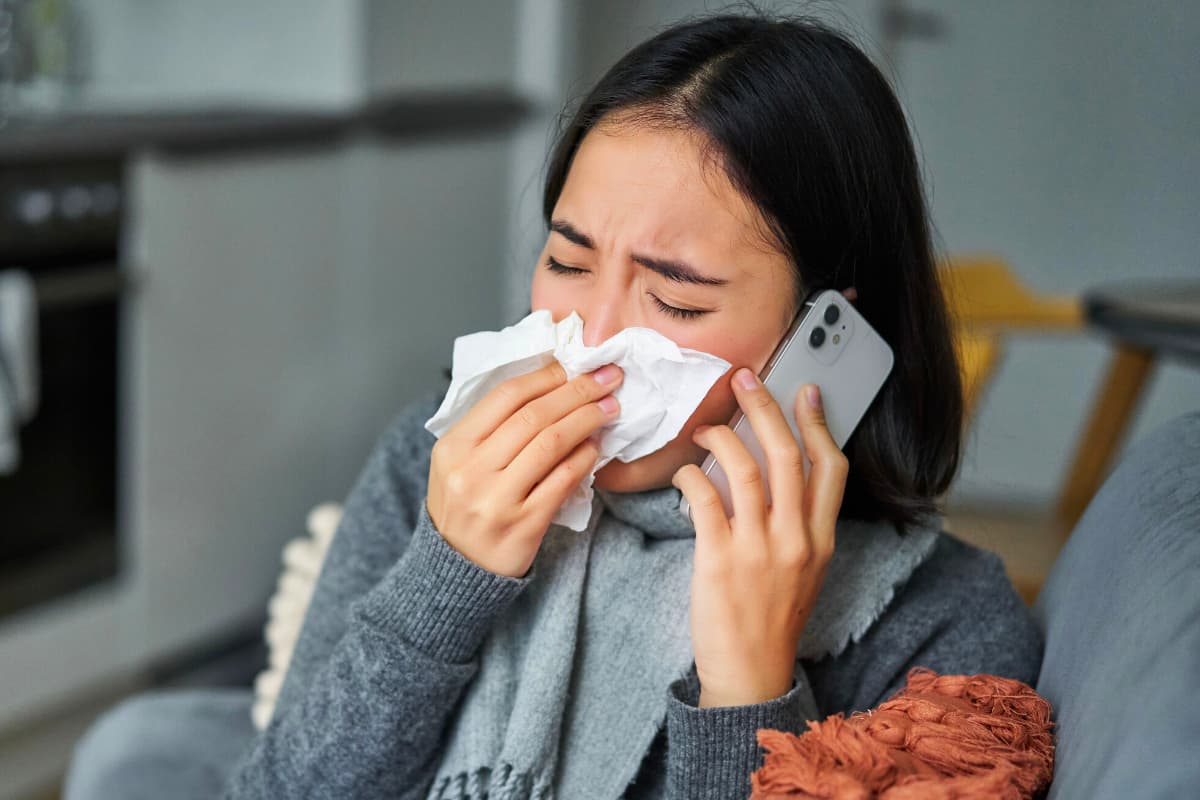Why Is My Nose Always Running?

You’re probably expecting certain well-known symptoms, like hot flashes and moodiness, to accompany menopause. It might be a surprise to find that you have a constantly runny nose as you enter perimenopause. Postnasal drip is a common but rarely talked about by-product of menopause. Let’s take a look at the causes of this phenomenon and what options we have for the prevention and treatment of a chronically runny nose.
Your Aging Nose
Independent of menopause, aging brings many changes to the structure of our noses. All genders will experience weakening nasal bone and cartilage, thinner, laxer nasal skin, and changes to the size and shape of the nose as they advance in years. All these physiologic changes lead to an increase in the incidence of rhinitis (inflammation of the mucous membranes) in aging populations.
Inflammation
Now add the hormone changes of menopause into the mix and see what low estrogen can do to your nose. Estrogen is known to have anti-inflammatory properties. Your body is more prone to developing inflammation in a low estrogen state. This inflammation can include rhinitis and postnasal drip. To date, little research has been done to verify the specific link between low estrogen and rhinitis, but clinicians see a clear connection in practice.
Mucus Production
Another effect of low estrogen is a change in the production of nasal mucus. Estrogen is known to modulate mucus production, and low estrogen leads to dryer nasal tissue. Dryness can stimulate the body to produce more mucus in an attempt to protect your nasal passages. More mucus means more postnasal drip.
Allergies
Estrogen also plays a part in our immune response. When estrogen is low, our immune system tends to have a less modulated response to allergens. This has the potential to cause a worsening of allergy symptoms. Many people also develop new allergies once they reach menopause. Allergies can cause nasal inflammation, thus increasing your chance of developing a runny nose during menopause.
What Can You Do About It?
- The first thing you might want to do is have a conversation with your primary care provider about your symptoms. They can help you narrow down the cause and determine the best approach to your treatment.
- Nasal irrigation or using a simple saline nose spray (like Arm & Hammer’s Simply Saline) once a day for at least a month can dramatically improve your postnasal drip. This can soothe and moisturize your nasal passages and improve nasal symptoms.
- If your symptoms are caused mostly by allergies, you have many treatment options. Daily antihistamines can help allergic rhinitis, as can a steroid nasal spray. Regular use can lower inflammation and modulate your immune response to allergens.
- Non-allergic rhinitis can be treated by using lubricating saline nasal sprays and taking decongestants, to name just a few options. These approaches will help soothe your nasal passages and regulate mucus production.
What Should You Avoid?
The last thing you want to do if you’re suffering from postnasal drip is to increase the inflammation and dryness in your nose. Resist the urge to blow your nose constantly. Avoid known allergens like chemicals, dust mites, and grasses, and limit your exposure to pollution and smoke. Also, consider switching to unscented home and personal care products. Even cold temperatures and wind can increase dryness and irritation and worsen your postnasal drip.
Stop the Drip
Postnasal drip is a common annoyance for many women during menopause, but not something you have to live with for the rest of your life. Talk to your healthcare provider and reduce or eliminate the factors that can aggravate the issue.
For more expert education and tips to improve your menopause journey, download Midday from the App Store or visit us at Midday.Health.
Jennifer Turkyilmaz, RN, BSN, is a medical writer who worked for many years in women’s health as a high-risk pregnancy nurse. She is also a newly menopausal woman who wishes she had known more about what to expect before it happened to her.
Sign up for more unique women’s health content
By submitting this form, you agree to the Lisa Health Privacy Policy and Terms of Use


